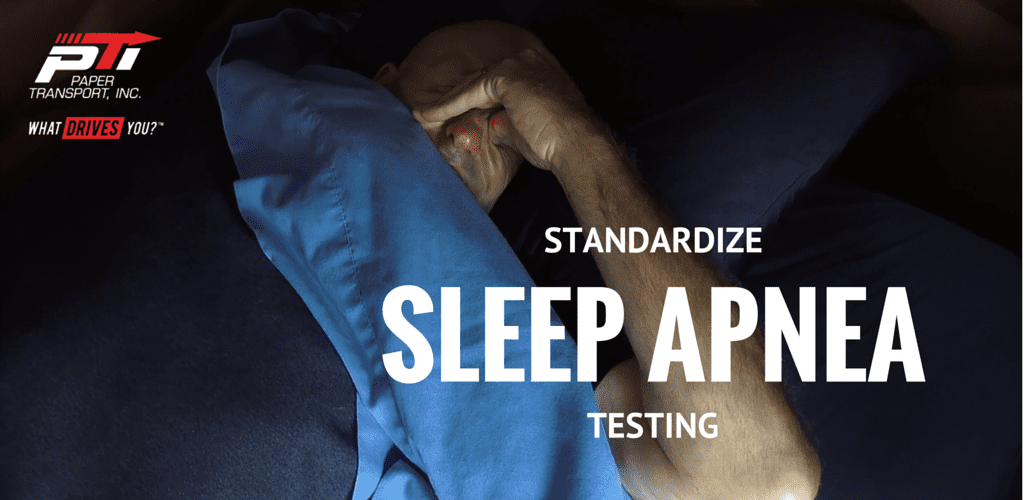
Sleep Apnea Testing: Trucking Industry Needs to Demand Standardization
By: Barb Kornowske, PTI Director of Human Resources, PHR
Our greatest concern is the safety of our employees and the motoring public. While they admit to being tired, drivers will often attribute their fatigue to their lifestyle in the truck and not sleep apnea.
Since 2011, Paper Transport, Inc. (PTI) has provided company paid sleep apnea testing. Drivers who take advantage of this benefit do so because their D.O.T. physician states testing is needed or the driver self-reports (i.e., he or she believes they may have an issue). Self-reporting drivers are few and far between.
Since our inception of our current sleep apnea program we have tested 73 drivers. Only 6 out of the 73 were negative for sleep apnea – 92% of drivers tested were positive. This number is alarming when you consider the drivers didn’t believe they had a problem in the first place.
Due to so many drivers who firmly believe they do not have an issue (when they clearly do), we can quickly arrive at a few key conclusions:
- Testing drivers who do not pass the simple Berlin Questionnaire, which is a standard in the industry, should be instructed to take the sleep apnea test.
- Drivers who are at risk should be tested for sleep apnea and drivers who are not at risk should not be required to test.
- The industry needs a standard and must go with facts versus assumptions.
At PTI, we have simplified the process for our drivers and make every attempt to keep it as streamlined as possible without a driver losing a day of work. Also, we partnered with a company that works with our drivers to ensure they understand the benefits of the study and therapy that will need to be administered if the driver tests positive for sleep apnea.
The situation that is currently out there – because it’s not regulated – is this:
Facilities are exploiting sleep apnea as a source of revenue versus a standard cost and process for testing.
In investigating the cost of sleep apnea testing throughout the country, my findings showed an extreme lack of standardization:
- Pricing varied from $1,000.00 to over $6,000.00
- Required stay varied from 1 nights to 2 nights, depending if a split study was needed
- No pricing/process standards if a driver decided to go on his or her own
- No pricing/process standards for sleep apnea machines
At PTI, we minimize the impact on the driver as much as possible. The driver takes the test home with him or her (or they can do the test in their truck on their break) and then the driver gives the test machine back to us for results within 2 days to determine the next steps. Not only do we pay for the testing, if a machine is needed, then we order it, pay for it, and then do a payroll deduction until paid in full for the machine only. Drivers who have opted for our company HSA or HRA can also pay for the machine and minimize the impact on their wallet.
Companies need an advocate for their drivers by ensuring drivers are treated fairly, honestly, and are armed with the information they need. Sleep Apnea can be a lifelong condition and information is key.
For more on this discussion, check out Progressive Railroading‘s recent article discussing FRA and FMCSA’s considerations for sleep apnea screenings: https://www.progressiverailroading.com/federal_legislation_regulation/news/FRA…
For more information about Paper Transport, Inc., visit www.papertransport.com.
